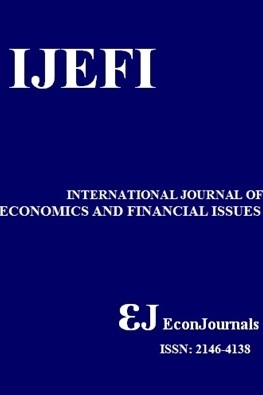Determining the Oral Construct of the Test of English Communication Skills
Determining the Oral Construct of the Test of English Communication Skills
Oral Contruct, Exit Test, Minimum Standard Expected, Workplace Assessment Criteria, Oral Communication Ability,
- Başlangıç: 2011
- Yayıncı: İlhan ÖZTÜRK
Role of Psychological Factors in Individuals Investment Decisions
Hasrita LUBİS, M. Dileep KUMAR, P. IKBAR, Saqib MUNEER
Kazeem Oluwatoyin Ajape, Arifin Mamat, Yusuf Abdul Azeez
The Effect of the Tax Planning to Firm Value with Moderating Board Diversity
A View from Academic Administrators on the Characteristics of Future University
Ahmad Jusoh, Anis Syahira Zulkifli, Amran Mohammed Rasli, Yasin Munir
Nurfarahin Jasmine See Abdullah, Ismi Arif Ismail, Khairuddin Idrus
Abdullah Rajeh Ali Alamer, Hussin Bin Salamon, Muhammad Imran Qureshi, Amran Mohammed Rasli
Auditing the Auditors: Has the Establishment of the Audit Oversight Board Affected Audit Quality?
Hashanah ISMAİL, Ung Chui THENG
Corporate Cash Holding Behavior and Financial Environment: A Critical Review
Muhammad Sohail TAHİR, Mohammad Norfian ALİFİAH
A Review of Commercialization Tools: University Incubators and Technology Parks
